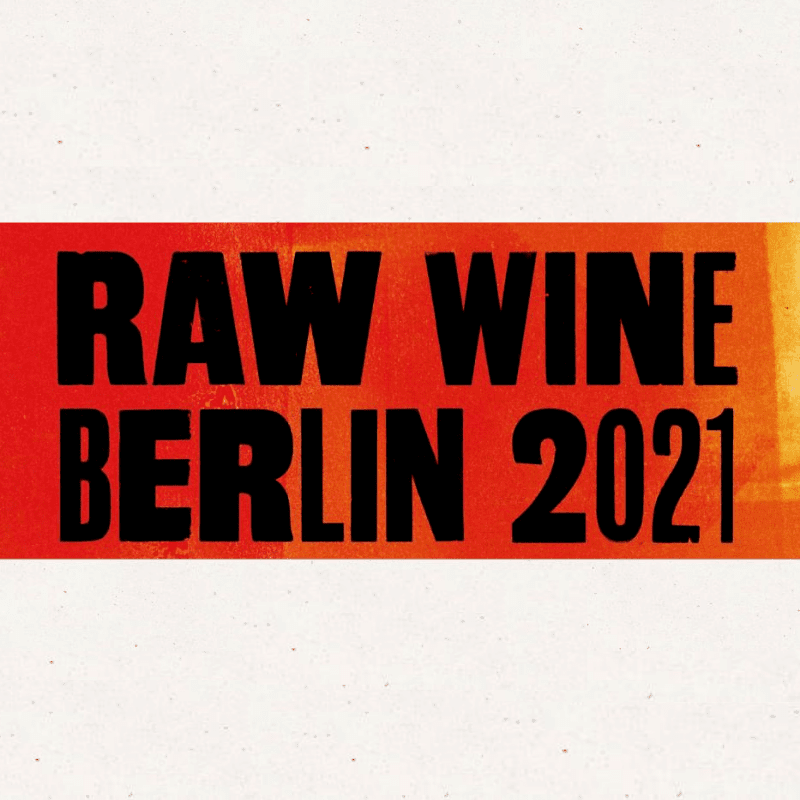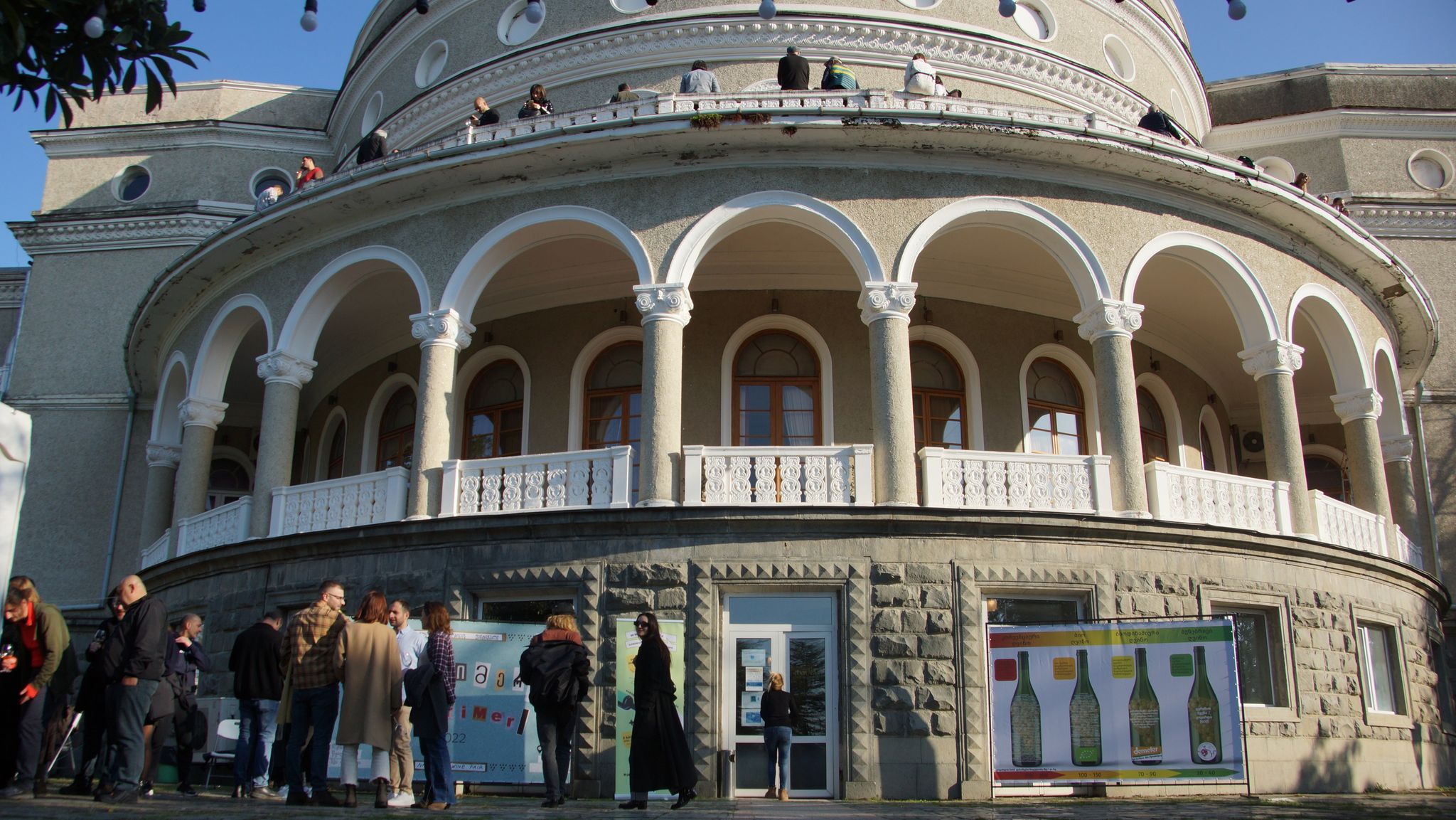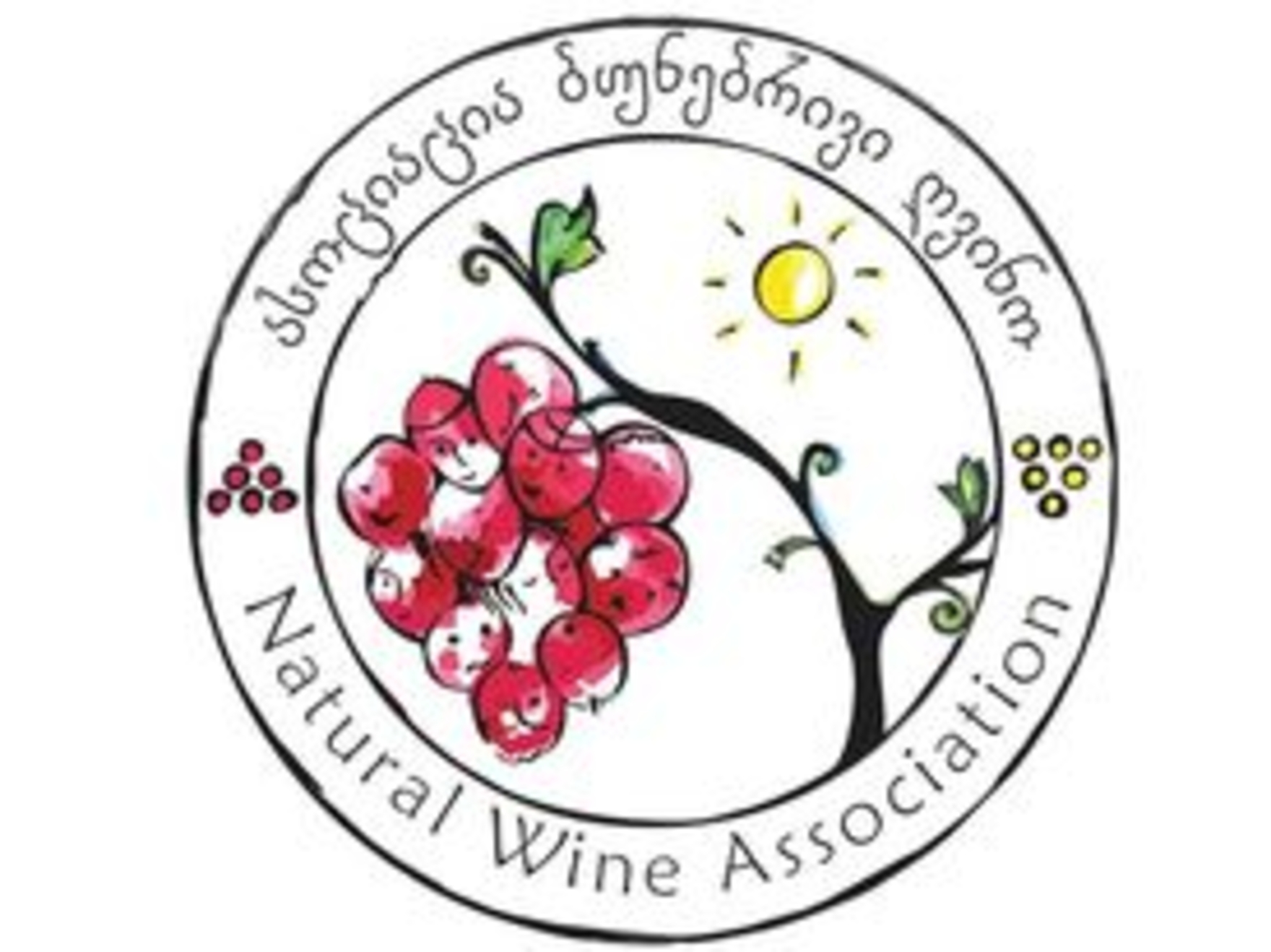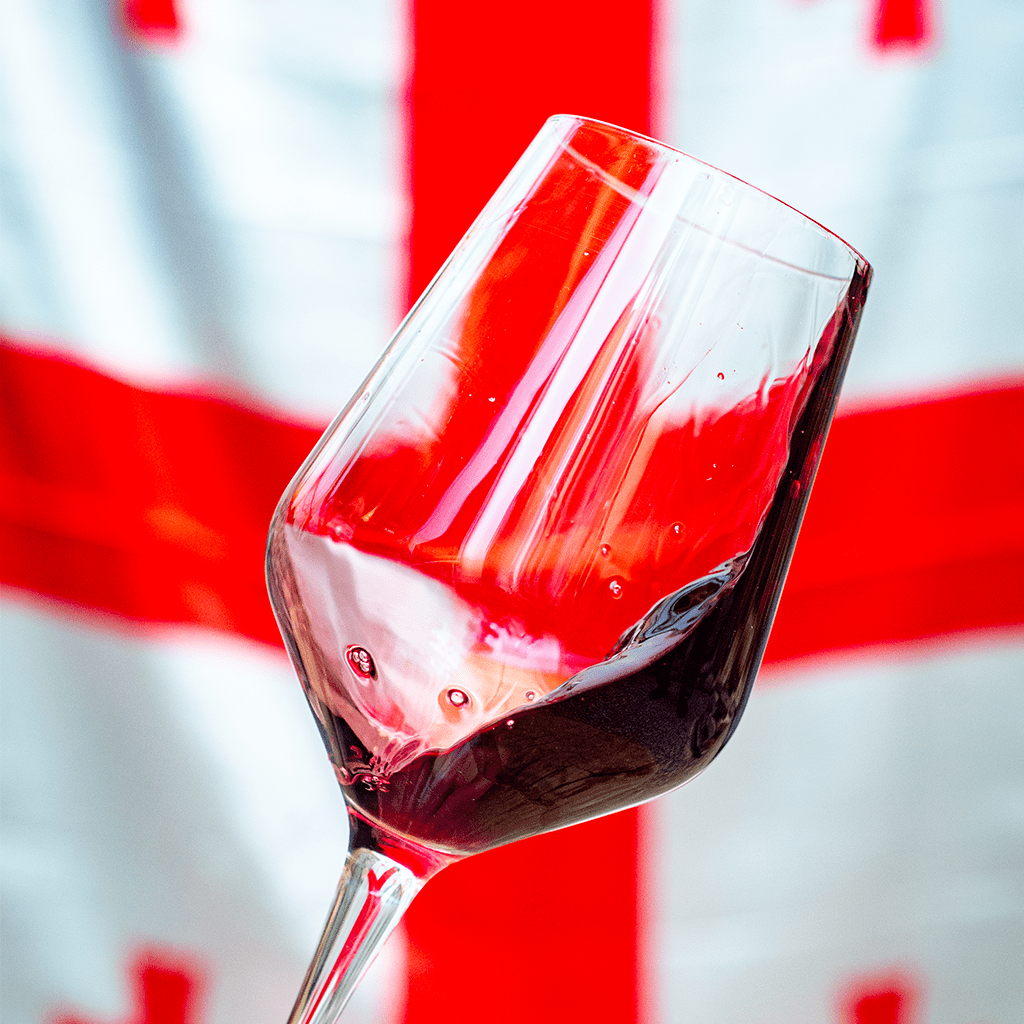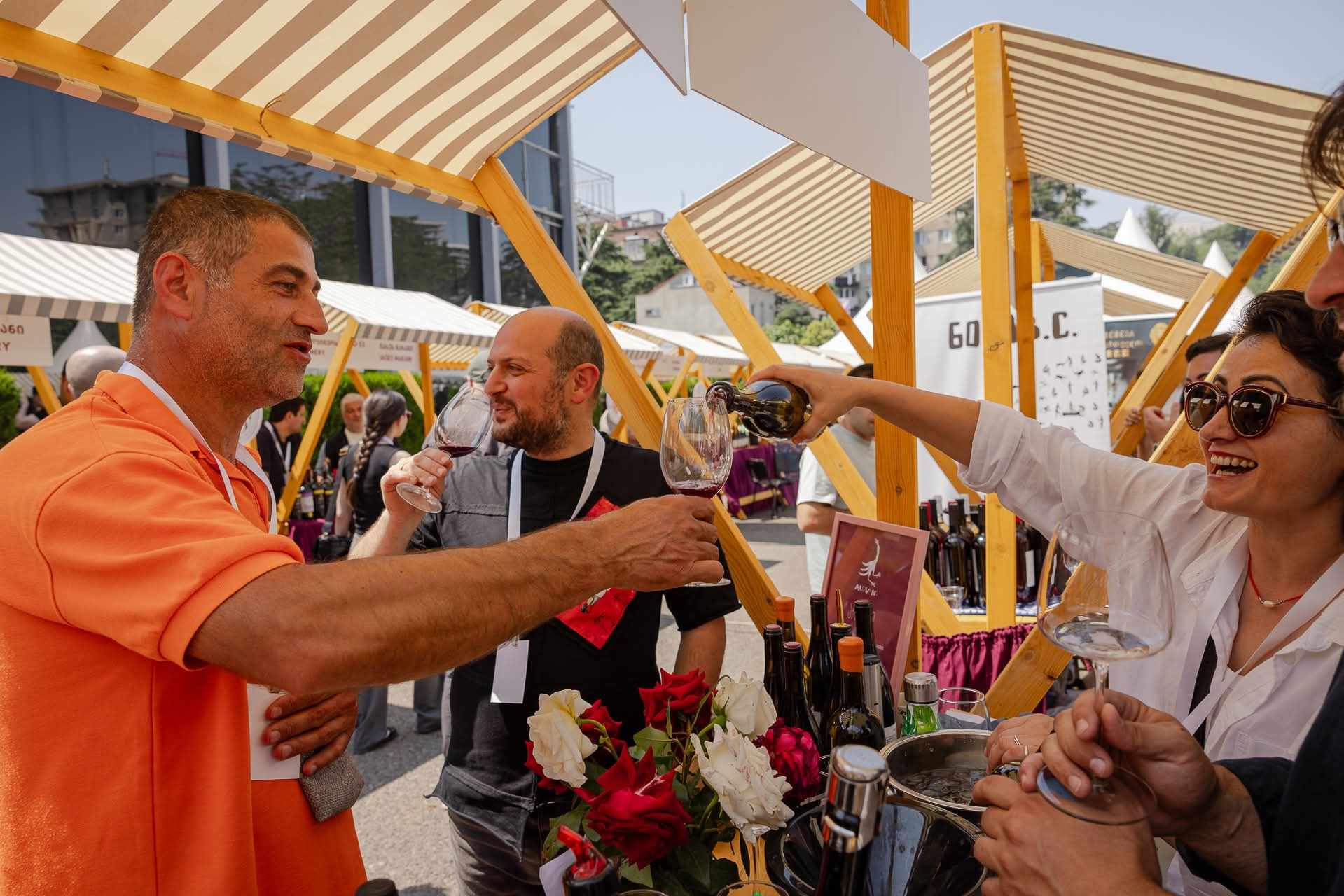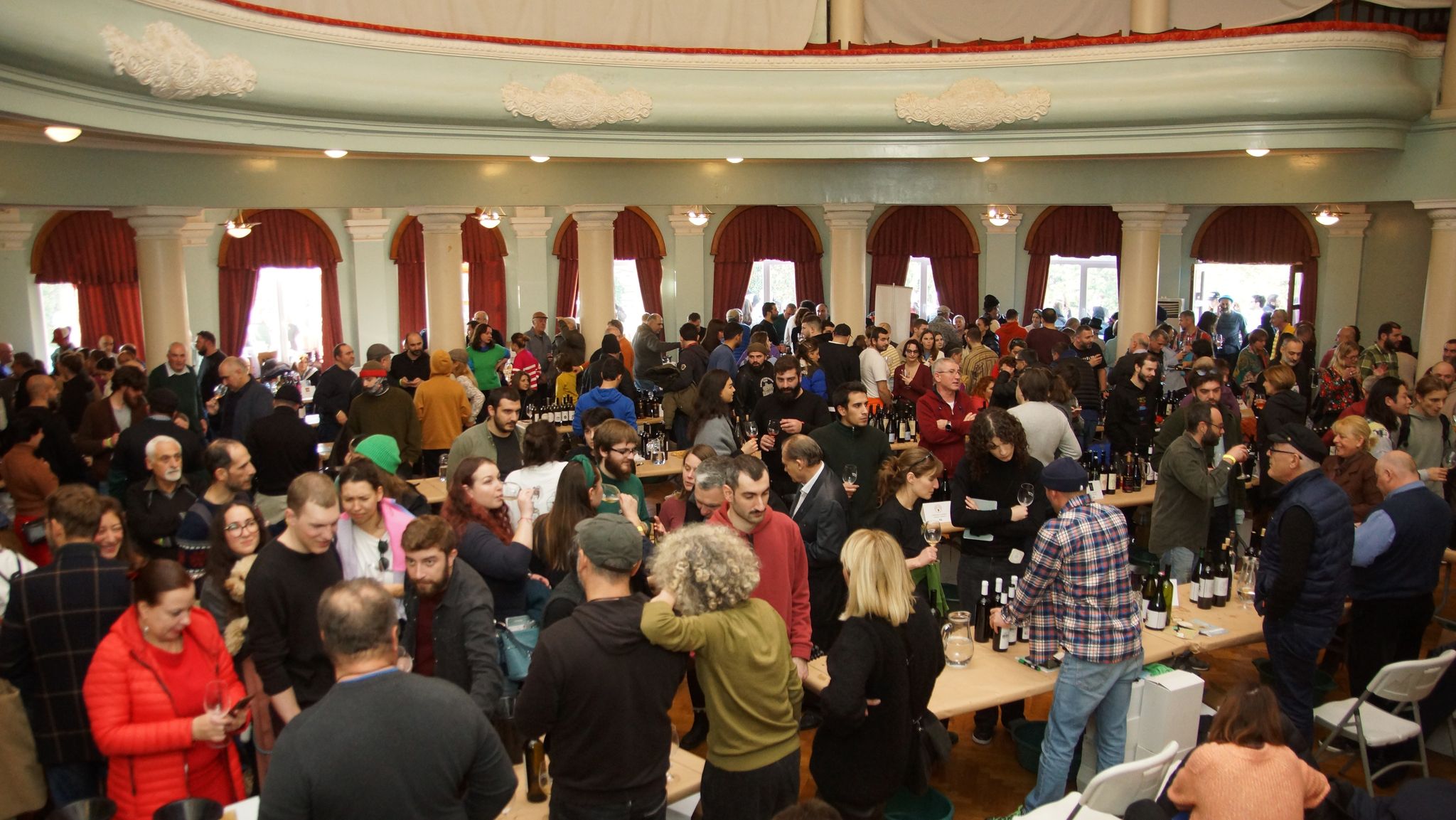News . 14-03-2022
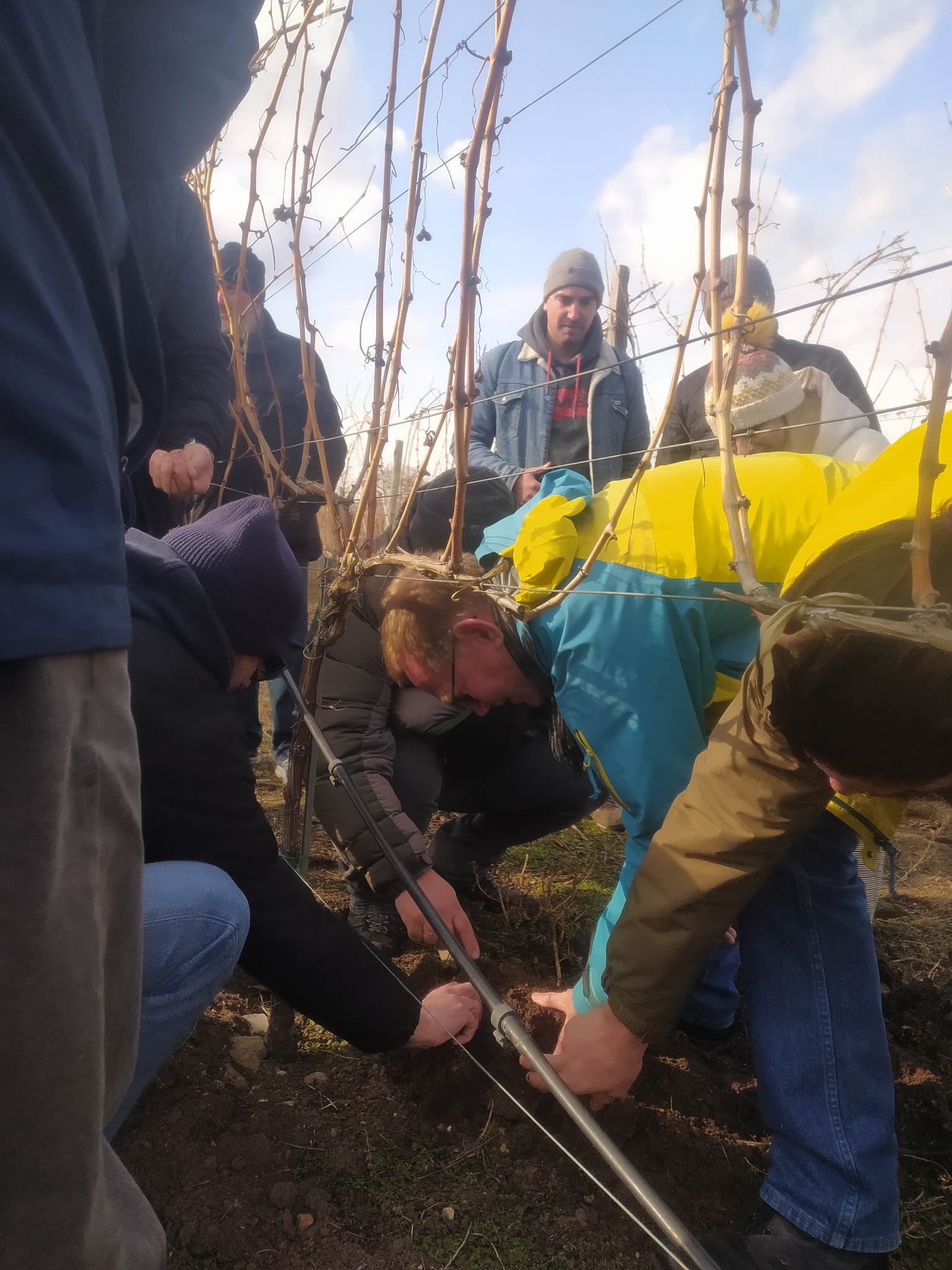
Paulin Koepfer's three-day training for Georgian winemakers
On February 16-18, within the framework of collaboration between the Natural Wine Association and the Deutsche Gesellschaft für Internationale Zusammenarbeit (GIZ), the founder of ECOVIN, the CEO of Vineyard/Winery with a Demeter certificate, Mr.Paulin Koepfer, has conducted a three-day lecture-training for grapegrowers and winemakers, members of the association, in Tbilisi and the village of Chardakhi.
Mr. Paulin Koepfer already have had the workshops with his Georgian colleagues last year. And now, the trainings held on February 16-18 have touched on the philosophical and cultural approaches in the modern era of viticulture and winemaking, such as biodynamic grapegrowing, as well as practical topics such as soil care and enrichment in the vineyard, vine protection and technical equipment of the vineyard.
On February 16, the training was devoted entirely to biodynamic winemaking and the discussion of current trends in this direction. According to Mr.Paulin Koepfer, 1924 is considered to be the beginning of biodynamic viticulture/winemaking in the world, when German winemakers, worried about the monotonicity and sameness of the harvest and wine, applied to Dr. Rudolf Steiner for support and asked him to develop a methodology that would return viticulture to its origins and restore the old, true taste of wine. On this basis, the first movement of biodynamic agriculture was established. The Biodynamics Center founded by Steiner is a kind of spiritual science school of viticulture and winemaking around the world, which studies and develops the biodynamics on a scientific level.
“This is the way all winemakers follow who have decided to become a specialist in biodynamics. I have worked with this method and the final result is really impressive. Biodynamic approaches solve many problems in viticulture that simply could not be solved otherwise’’. – Mr. Paulin Koepfer noted.
On February 17, Mr. Paulin Koepfer discussed the secrets of soil care and enrichment in terms of his own experience. According to him, proper soil management is the most important thing in viticulture. It is not so much a matter of fighting the symptoms of the disease as it is of creating the conditions that ensure the good health of the vine. A good viticulturist should know when loosening the soil is necessary or when other specific measures are acceptable.
According to Koepfer, it is important to form high-quality humus in the vineyard and then maintain this layer. If this cannot be achieved, only greening measures and sowing of auxiliary plants in the vineyard are recommended.
The training was attended by the winemaking expert, Mr. Davit Chichua, who cooperates with the Natural Wine Association and GIZ. He shared his opinions with NWA.GE: "I am attending these events not as a practicing viticulturist, but as an observer, and I guess, if we do not look at the problems in viticulture from a different point of view, we will find ourselves in a worse situation in the future. Conventional methods are a kind of spiral that makes the problem even more complicated. In the conventional vineyard, organic preparations are used, the doses of which are increased year by year. Then, when the problems escalate even deeper, the doses are further increased and with this spiral, our viticulture is slowly heading toward the abyss. Therefore, it is necessary for conventional viticulturists to think about many things. The viticulturists gathered here, who produce natural wine, have stated their vision a long time ago and made a solid choice that the problems cannot be solved by artificial intervention and it is be preferable to solve them with the potential of the universe and the plants. This does not mean that we would yield a big harvest with such methods, but it would be a prerequisite for the eventual survival and existence of sustainable viticulture".
The conclusive meeting of the three-day lecture cycle was held in Chardakhi village of Mtskheta municipality, in the vineyard of one of the founders of the Natural Wine Association, Mr. Iago Bitarishvili. The main topic of the February 18 training was a vine protection and a review of the technical equipment of the vineyard.
Tengo Dvalishvili, viticulturist-winemaker of TD Winery, training participant: "The third day of the training cycle has been of special importance, when we visited to Iago's vineyard and have seen in practice what we have heard in theory during the training of previous day. Mr. Koepfer himself was also impressed when he faced such a well-kept vineyard. Many young viticulturists attend these meetings and this is very important in terms of our growth".
Paulin Koepfer emphasized the importance of plant care through biological protection and noted that protecting plants in such a way as not to harm the environment and not to create a threat to other necessary plants is the main challenge of modern viticulture. Properly selected treatment is the basis of the entire viticulture system and when the viticulturists are unable to properly treat in such a way as to avoid polluting the environment, they will inevitably have to deal with many undesirable side effects and this will affect the quality of wine as well.
Iago Bitarishvili, one of the founders of Natural Wine Association: "In winemaking, one can acquire knowledge through his/her own experience or apply for support to others, but in the field of viticulture, unfortunately, the knowledge is of much lower level. It is difficult to find a good viticulturist who would advise appropriate tips useful in practice. These tips are important for those members of our association who are caring for the vineyards themselves and are forced to study at the expense of their own mistakes for years. Therefore, the arrival of such a specialist with great experience and his advice is of the utmost importance. A lecture on organic viticulture has been conducted by a person who has a lot of experience in this direction and is a representative of one of the recognized organizations ECOVIN".
Levan Sebiskveradze
